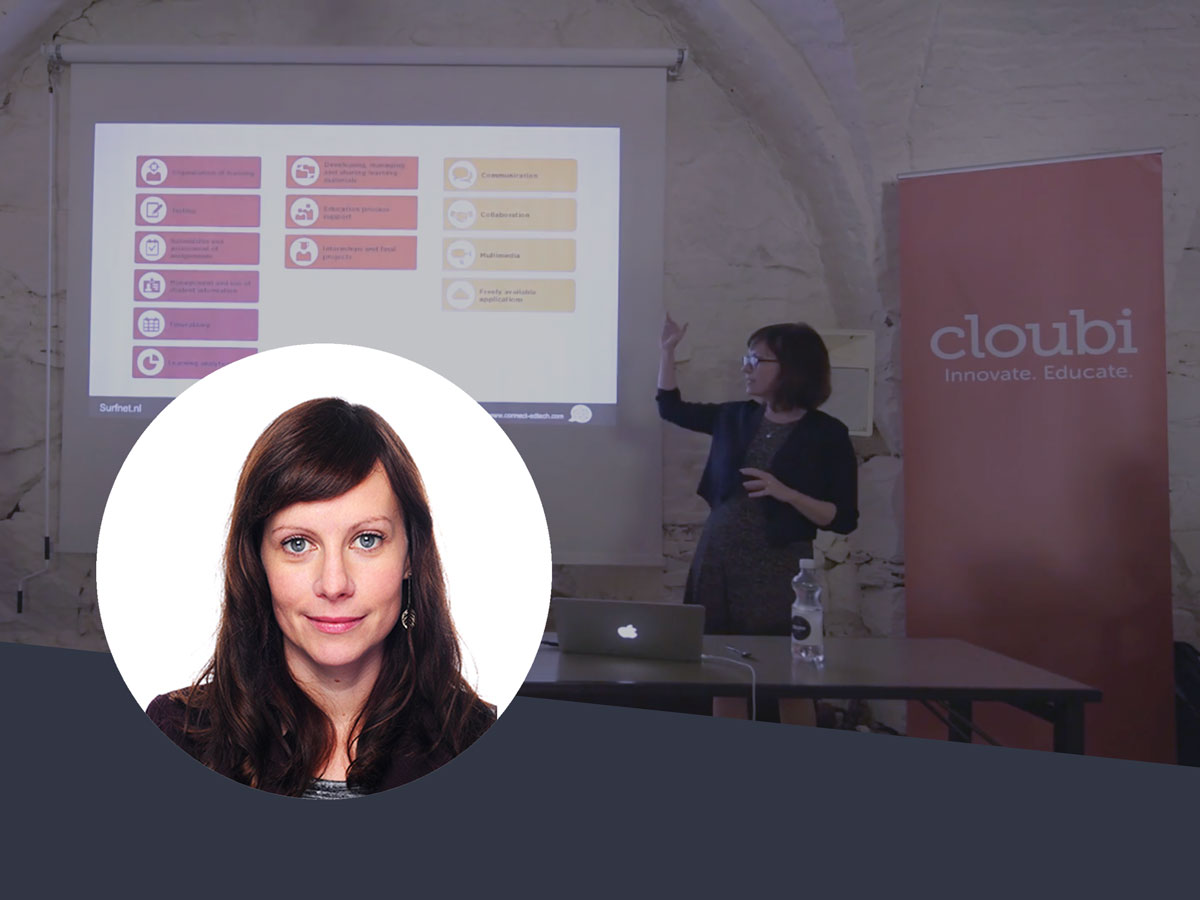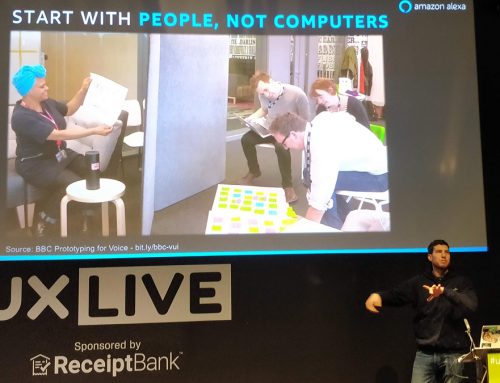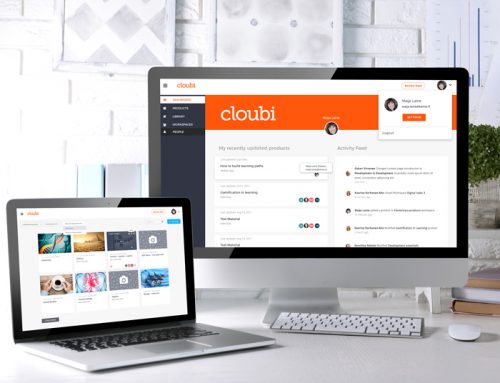
First up on stage at the Cloubi Community Meet 2018, was EdTech consultant Beth Havinga, Managing Director of Connect EdTech. In her keynote speech, Beth tackled a wide range of subjects, offering the audience a comprehensive overview on market trends in education and EdTech.
Beth started her career in education as a music teacher in a small high-school in Switzerland. After her first introduction to education she has worked in different roles and capacities for both educational organisations and publishers.
Today she is an educational consultant and founder of Connect EdTech. “For the past five years I have been consulting governments, publishers and EdTech startups,” Beth said. Currently, Beth is based in Berlin, but frequently visits Norway, England, Switzerland, Austria, and of course her home country Australia.
Beth’s keynote speech at the Cloubi Community Meet was titled Modularity, Privacy and Openness: Market trends and their integration. Her extensive experience in the field is evident, as she talked about the current state and challenges in education and what the future will bring. “$ 250 billion will be invested in EdTech by year 2025,” Beth stated in the beginning of her speech, setting some framework for EdTech’s growth potential in the years to come.
However, Beth also pointed out that there are some clear challenges to be recognized. “I currently see a massive gap between what is possible and what the reality is in schools,” Beth said. As the two biggest challenges she mentions infrastructure and regulation, with infrastructure being of vital importance. “And then there is of course fear and anxiety over robots and automation taking over, but only time will tell what kind of an impact they’ll have on EdTech,” she concluded.
What does the future in education look like?
In addition to the major themes of inclusiveness and learning equality that underlined Beth’s presentation, she presented 5 major themes that she think will play an important part in shaping education in the coming years. Focusing on these elements can help organisations to stay on track in a time of constant change and rapid development.
Skills
We need to be creating journeys that take our learners and teachers through the skill sets that they will need in the future. “Educators, investors and content creators shouldn’t be focused on training for potential programming or coding jobs. Instead we need to be equipping the learners with creativity, critical thinking and the tools that we use today. Knowing how to program isn’t what makes a really great programmer,” Beth said.
“When creating content we need to think about what we are educating our students for, where they are heading and where we can include some of the skills that are actually needed in the workplace and our society,” she continued.
The key skills for modern education
- Leadership
- Digital literacy
- Communication
- Emotional intelligence
- Entrepreneurship
- Global citizenship
- Problem solving
- Teamwork
Integrated systems
We need to switch our mindset to viewing all our system components as an ecosystem and start figuring out how interchangeable the components are. Systems interoperability and standardisation ultimately makes it easier to create optimal and seamless systems and better learning experiences.
Data
We have to be careful with the data we are gathering and have its purpose clearly defined. Our claims for data gathering have to be justifiable and support the teachers and students in their development. We also have to think about the availability of data, i.e. how can the learner access personal data later on during his/her journey. Lastly, in order to stay on top of things, it is crucial to be aware of where the development of data utilisation is heading.

VR & AI
We have to be realistic when considering the implications and applicability of new trends such as VR use in education, as we move forward. VR has much potential in vocational education where major investments are already being made, but mainstream education faces big applicability challenges. “I’m not seeing that the feasibility is there to implement VR on a widespread scale at the moment,” Beth stated. She explained that the funding and resources are simply not there, the timing is a bit off and then there is the teachers’ scepticism over why they should be doing VR why they in the first place and what its benefits are that cannot be achieved with other methods.
AI and Machine Learning on the other hand, is a space that a lot of people are watching and many think will be essential in the coming years for example through adaptive learning materials. However, some mistrust from the teachers can be recognised here as well.
Needs oriented
Our market is changing rapidly, our consumers have become producers and content creators. Hundreds of thousands Instagram posts and Youtube videos are uploaded online every minute.
“For publishers and content creation environments, it’s more about becoming content curators. We are still going to be content creators, but we also have to curate all the other content that’s out there – including the content that’s created by our end-users,” Beth said. The landscape has evidently changed, and now it’s up to ourselves to try to keep up.





